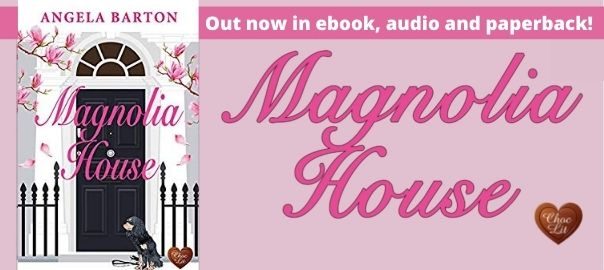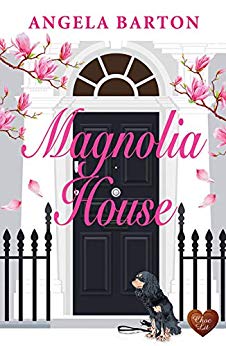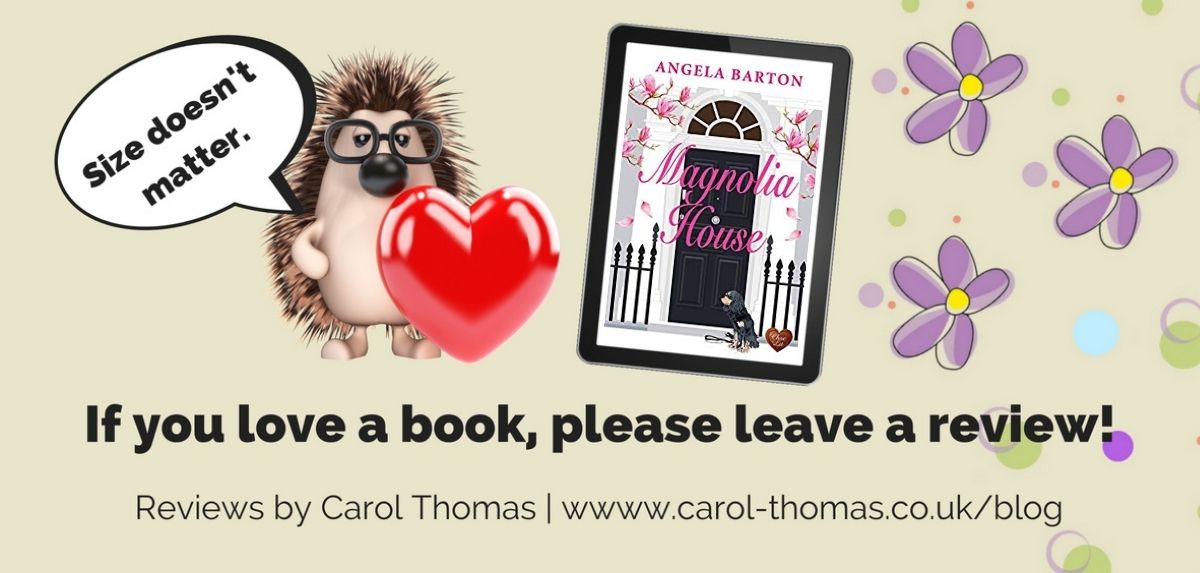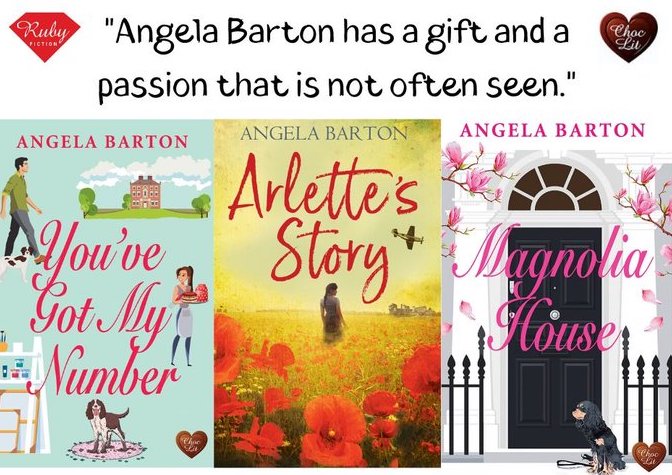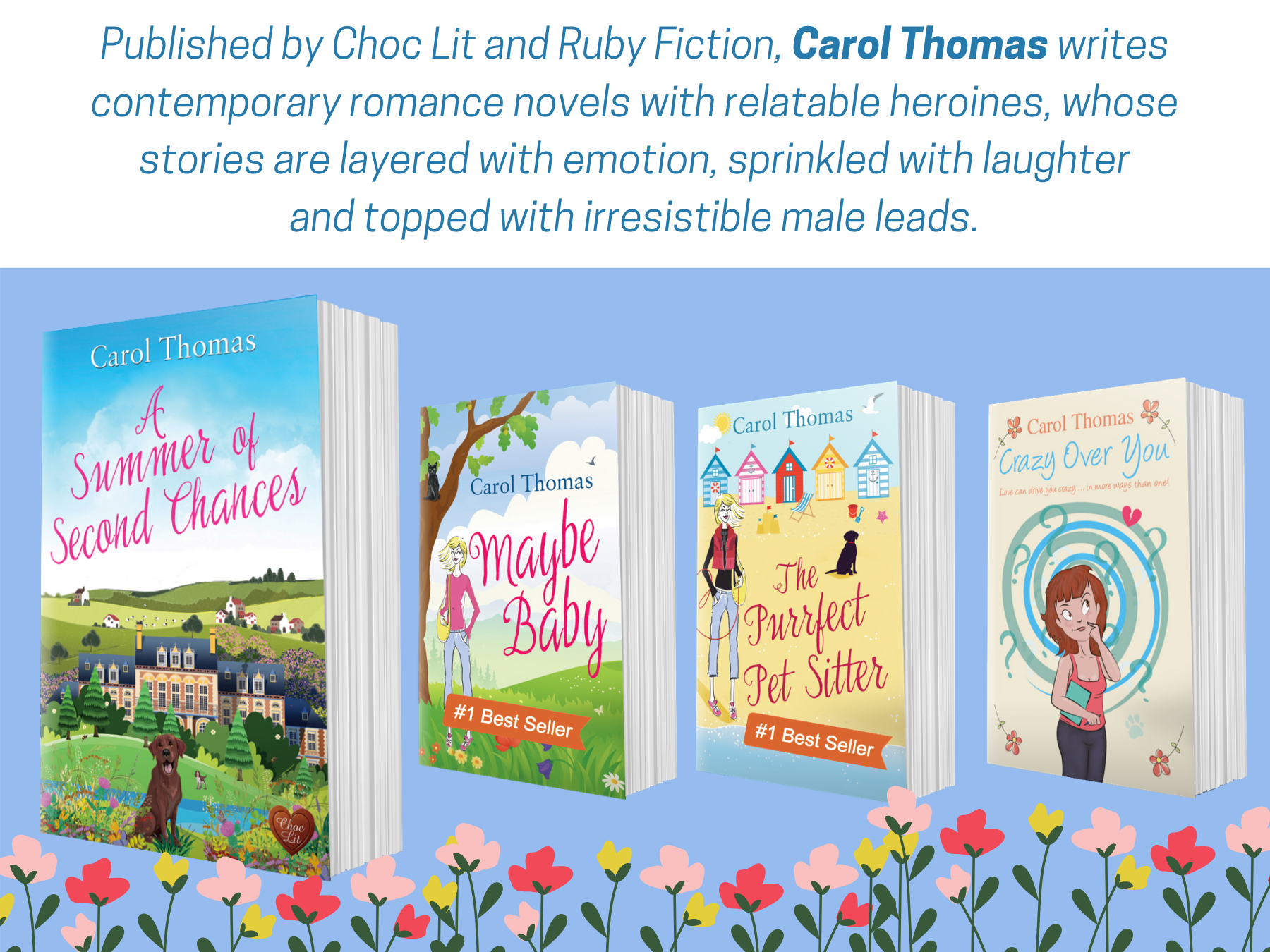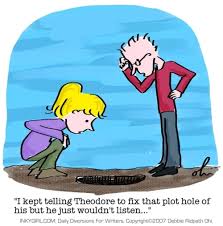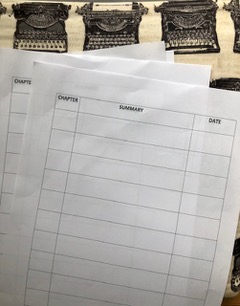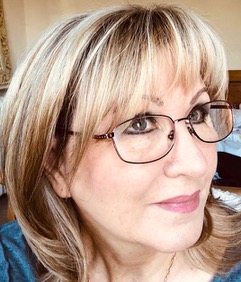Today, I am joined by fellow Choc Lit author Angela Barton, as she talks about mental health in fiction on the release of her novel Magnolia House in paperback. Over to you, Angela …
Behind millions of front doors where a perceived glow of perfection shines, live individuals or families struggling with private battles. Magnolia House is one such place.
Few lives go untouched by mental health problems, either their own or a loved one’s. As a writer I feel it’s important to make fictional characters multi-dimensional. Yes, they laugh, love and enjoy their lives, but not always. It would be unrealistic. Characters should face dilemmas, illness (including mental illness) and broken relationships.
My protagonist, Rowan, must confront a devastating change to her life in the opening chapters of Magnolia House, while her sister-in-law, Libby, suffers from depression that manifests in the form of an obsessive-compulsive disorder.
I think when handled with care, a character with mental illness can not only enliven a storyline but also open readers’ eyes to new experiences and perspectives. But psychology and psychiatry are complex and evolving disciplines, and as a writer introducing a character with mental health problems, I find it a responsibility and an obligation to avoid caricature and most importantly, to get the facts correct. I once read a book where a character with depression was feeling better the day after taking anti-depressive medication. This inaccuracy immediately spoilt the book for me. This type of medication can take 4-6 weeks to work effectively. Spreading misinformation does everyone a disservice.
Although common, mental illness isn’t the norm so a writer must find a way for their readers to relate to their character, despite the illness and because of it. To feel better, Libby spends money she doesn’t have and finds herself in a lot of debt, all the while hiding it from her husband. The choosing, the wrapping and the buying gives her the high she’s seeking, but immediately she’s racked with guilt and anxiety at the money she’s spent. She needs to feel better, so she enters another shop and the cycle continues. It’s behaviour as real as an eating disorder or self-harming. It’s unlikely to stop until the root cause is discovered and worked on. Libby struggles to contain her illness and appears to be fine for the sake of her loved ones, until the day comes when she has no option but to ask for help.
Stories with characters suffering with mental illness work best when they are written around a person and their relationships, not writing about the illness itself. It doesn’t take pages of obsessive thoughts to deliver the message of an altered mental state. Mental illness can be debilitating but it doesn’t define a person. That job still rests with the writer and their huge challenge of not leaving the reader behind.
Magnolia House isn’t a story full of gloom and negative behaviours. So many of my reviews mention Mason (Ace), another of my characters in the book. He makes them laugh out loud and they say that he balances the darker storyline perfectly, which is a huge relief to me that they feel that way. Of course there’s plenty of romance too when Ace’s handsome and talented brother, James, arrives home from working abroad.
If you’re struggling emotionally, there are people who can help.
- Call NHS 111 (for when you need help but are not in immediate danger)
- Contact your GP and ask for an emergency appointment
- Contact the Samaritans | call 116 123 | Website
- Use the ‘Shout’ crisis text line – text SHOUT to 85258
Some reviews by readers of Magnolia House:
“This is emotional, beautifully written, heart-breaking and heart-warming story. I love how realistic the plot is. Rowan’s personal story could happen to anyone, the reader can really relate to her. All the character’s are beautifully created and very likeable, even the secondary character’s such as Tom’s sister Libby who goes through her own issues. Magnolia House is a story that is full of hope, love and compassion, highly recommended!”★★★★★
“This book is outstanding. I finished it in 24hours, and was totally gripped by it. I was actually moved to tears in some sections due to the magical descriptions by the author that allowed me to play out the whole story in my head.”★★★★★
“Oh wow, what a rollercoaster of a book! Angela has captured so many emotions in this story. There is love, hatred, disbelief, astonishment, compulsion and then honesty.”★★★★★
“Magnolia House was a wonderful emotional read. I cried along with Rowan at the beginning but also found myself laughing at some of the situations Rowan ends up in and I loved the intrigue and mystery behind the letters Rowan received. For me this was a perfect novel full of heartbreak, romance and mystery. Angela Barton really brought Magnolia House to life and I loved it.”★★★★★
“Magnolia House is much more than a romance, the characters have depth and sensitive issues are dealt with compassion and understanding.” ★★★★★
Thank you so much for the thought provoking post, Angela. In case anyone missed it, here is my review of Magnolia House:
Magnolia House is a heartwarming and entertaining read that doesn’t shy away from exploring the highs and lows faced by the main character, Rowan. Throughout the story, there are dark and light moments that the author has balanced well. While it incorporates loss, grief and deception, it is undoubtedly also a story of carrying on, and of finding the positives when all around you seems to be falling apart.
Rowan is a strong, likeable character, who doesn’t sit back and let her problems define her. She takes steps toward building a new life drawing the reader into her world, as they gain an understanding of her hopes and fears for the future.
I loved the supporting cast of characters, especially Mason, who brings energy and enthusiasm to all he does, and Jet – Rowan’s adorable dog. James is a likeable male lead, whose role is at first subtle but develops well as the story progresses.
As you’d expect from Angela Barton, the text is descriptive, making it picturesque in its depiction as images are brought to life from the page.
Click below to find out more about Angela’s novels:
You’ve Got My Number | Arlette’s Story | Magnolia House
Author bio:
Angela Barton was born in London and grew up in Nottingham. She has three grown up children and adorable six-year-old twin granddaughters. Angela is passionate about writing both contemporary and historical fiction and loves time spent researching for her novels. In 2018 Angela signed publishing contracts for three of her completed novels with Choc Lit’s new imprint, Ruby Fiction.
In addition to writing, Angela also relaxes by making landscapes using free motion sewing on a machine. She is a member of the Romantic Novelists’ Association and a reader for their New Writers’ Scheme. Angela is also a member of Nottingham Writers’ Studio, the Society of Authors and Ellipses and Ampersands’ fiction critique group.
Discover more about Angela Barton and her novels here: Website | Twitter | Facebook | Blog | Pinterest | Amazon | Angela is also a member of Apricot Plots.
